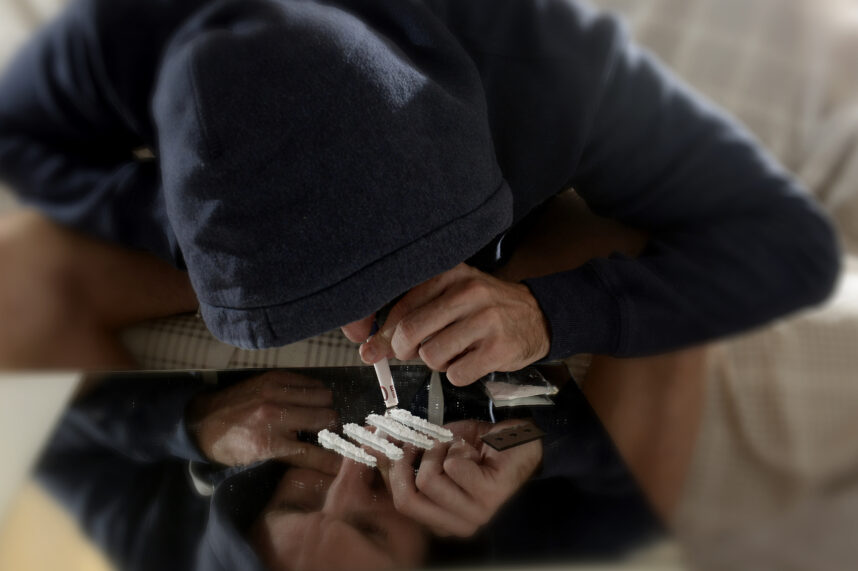
Prescription drug addiction is a growing problem in the state of Maryland, and it has far-reaching consequences, including fraud. The misuse of prescription drugs has become a major public health issue in the United States, and Maryland is not immune to its effects. In this blog post, we will explore the impact of prescription drug addiction in Maryland and how it relates to fraud.
The Impact of Prescription Drug Addiction in Maryland
Prescription drug addiction has become a major problem in Maryland. According to the National Survey on Drug Use and Health (NSDUH), in 2020, approximately 1.5 million Americans aged 12 or older misused prescription pain relievers in the past year. In Maryland, the rate of prescription drug misuse is slightly higher than the national average, with 4.2% of the population aged 12 or older misusing prescription pain relievers.
The misuse of prescription drugs has led to an increase in opioid overdose deaths in Maryland. According to the Maryland Department of Health, in 2020, there were 2,398 opioid-related overdose deaths in the state. This is an increase of 18.6% compared to 2019.
Prescription drug addiction can also lead to a range of negative health outcomes, including addiction, dependence, overdose, and death. It can also have a significant impact on the individual’s social and economic well-being, including job loss, financial instability, and strained relationships.
How Prescription Drug Addiction Relates to Fraud
The misuse of prescription drugs can also lead to fraud. Fraud related to prescription drugs can take many forms, including prescription forgery, doctor shopping, and illegal drug diversion.
Prescription forgery involves altering a prescription or creating a fake prescription to obtain prescription drugs illegally. Doctor shopping involves visiting multiple doctors to obtain multiple prescriptions for the same medication. Illegal drug diversion involves the distribution of prescription drugs to individuals for whom they were not prescribed.
Prescription drug addiction can drive individuals to engage in these fraudulent activities to obtain prescription drugs. Individuals may also sell prescription drugs to others to finance their addiction. The sale of prescription drugs is illegal and can lead to criminal charges and imprisonment.
Fraud related to prescription drugs can also have significant financial consequences for individuals and the healthcare system. It can result in increased healthcare costs, insurance fraud, and loss of revenue for legitimate healthcare providers.
Prescription drug addiction is a significant public health issue in Maryland, and it can have far-reaching consequences, including fraud. The misuse of prescription drugs can lead to addiction, dependence, overdose, and death. It can also lead to fraudulent activities, including prescription forgery, doctor shopping, and illegal drug diversion.
It is important for individuals who are struggling with prescription drug addiction to seek help. Treatment options are available, including medication-assisted treatment and behavioral therapy. It is also important for healthcare providers to monitor prescription drug use and identify individuals who may be at risk of addiction.
By addressing prescription drug addiction and related fraud, we can improve the health and well-being of individuals in Maryland and promote a healthier and safer community for all.
There are also steps that can be taken at a policy level to address prescription drug addiction and related fraud. For example, implementing prescription drug monitoring programs can help healthcare providers identify individuals who may be at risk of addiction or engaging in fraudulent activities.
Additionally, increasing access to addiction treatment and mental health services can help individuals who are struggling with prescription drug addiction receive the support they need to overcome their addiction and prevent fraudulent activities.
Furthermore, raising awareness about the risks and consequences of prescription drug addiction and related fraud can help individuals make informed decisions about their healthcare and prevent them from engaging in fraudulent activities.
Prescription drug addiction is a significant problem in Maryland, and it can lead to fraudulent activities related to prescription drugs. Addressing prescription drug addiction and related fraud requires a multifaceted approach, including individual-level interventions, policy-level interventions, and community-level awareness-raising efforts. By working together to address this issue, we can promote a healthier and safer community for all.
As a law firm, we at Alpert Schreyer Criminal Defense Attorneys can provide legal representation and support to individuals who are facing charges related to prescription drug addiction or fraud in Maryland. We can work with you to understand the charges you are facing, protect your rights, and develop a defense strategy that takes into account any underlying addiction issues.
Additionally, we can help you access resources for addiction treatment and work to mitigate the impact of addiction on your case. We understand that addiction is a complex issue, and we are committed to providing compassionate and effective legal representation to our clients who are struggling with addiction.
Moreover, we can provide legal guidance and support to healthcare providers who are facing accusations of prescription drug-related fraud. We can work to protect the provider’s reputation and defend against any criminal charges or administrative penalties.
We are committed to providing legal representation and support to individuals and healthcare providers who are facing charges related to prescription drug addiction or fraud in Maryland. We understand the complexities of these cases and are dedicated to providing compassionate and effective legal representation to our clients.
Contact the Drug Crime Attorneys at Alpert Schreyer Criminal Defense Attorneys in Maryland for Help Today
For more information, contact Alpert Schreyer Criminal Defense Attorneys to schedule a confidential consultation with a drug crime attorney. Our team is available to assist clients in Lanham, Frederick, Rockville, Waldorf, Annapolis, and Lexington Park, Maryland.
We proudly serve Prince George’s County, Frederick County, Montgomery County, Charles County and the surrounding areas. Visit our law offices at:
Alpert Schreyer Criminal Defense Attorneys – Lanham Office
4600 Forbes Blvd Ste 201 Lanham, MD 20706
(301) 262-7005
Available 24/7
Alpert Schreyer Criminal Defense Attorneys – Frederick Office
25 E Patrick St #200 Frederick, MD 21701
(301) 381-1993
Available 24/7
Alpert Schreyer Criminal Defense Attorneys – Rockville Office
11140 Rockville Pike 550-J Rockville, MD 20852
(301) 364-3195
Available 24/7
